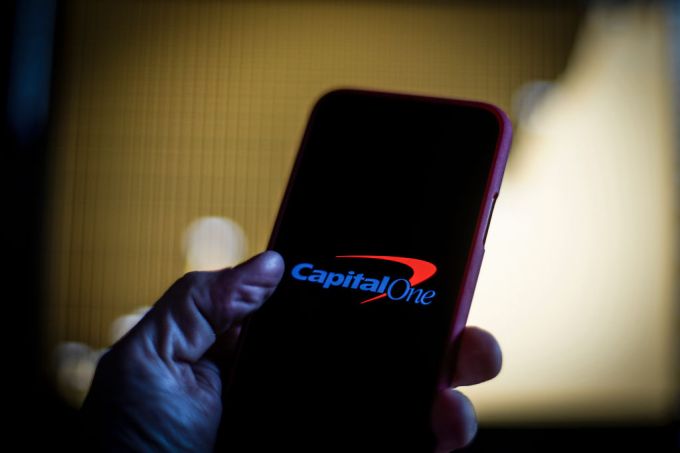Kevin Roose / New York Times:
As 8chan's founder, who sold the site in 2015, calls for it to be shut down, its domain registrar and Cloudflare say they don't have plans to stop servicing it — Fredrick Brennan was getting ready for church at his home in the Philippines when the news of a mass shooting in El Paso arrived.
Tech Nuggets with Technology: This Blog provides you the content regarding the latest technology which includes gadjets,softwares,laptops,mobiles etc
Sunday, August 4, 2019
As 8chan's founder, who sold the site in 2015, calls for it to be shut down, its domain registrar and Cloudflare say they don't have plans to stop servicing it (Kevin Roose/New York Times)
Parks Associates: 39% of US broadband homes own a streaming media player, up 1% since 2018; Roku and Amazon Fire TV own 39% and 30% of the market, respectively (Colin Dixon/nScreenMedia)
Colin Dixon / nScreenMedia:
Parks Associates: 39% of US broadband homes own a streaming media player, up 1% since 2018; Roku and Amazon Fire TV own 39% and 30% of the market, respectively — New research data shows that streaming media player growth is flattening. However, the number of connected TV homes continues to grow strongly, thanks to smart TV.
India’s Reliance to buy majority stake in Google-backed Fynd for $42.3M
Indian conglomerate Reliance Industries is acquiring 87.6% stake in Fynd, a seven-year-old Mumbai-based startup that connects brick and mortar retailers with online stores and consumers, for 2.95 billion Indian rupees ($42.33 million), the two said in a brief statement late Saturday.
Fynd, which was founded in 2012, helps offline retailers sell their products to consumers directly through its online store, and also enables them to connect with other “demand channels” such as third-party e-commerce platforms Amazon India and Walmart-owned Flipkart.
More than 600 brands including Nike, Raymond, Global Desi, and Being Human, and 9,000 stores are connected through Fynd’s platform, Harsh Shah, co-founder of Fynd, told TechCrunch in an interview. Many brands use Fynd’s products to also ramp up sales in their own respective e-commerce businesses.
Since Fynd works directly with brands, it offers a wider selection of items and newer inventories to consumers, as well as faster delivery, Shah claimed.

Fynd’s website
Reliance Industries, which owns the nation’s biggest physical retail chain Reliance Retail, has been a customer of Fynd for more than six years, Shah said. “Reliance runs a few major brands in the country. 25 of our existing brands are owned by them. Our Find Store product has helped their stores plug a lot of sales,” he said.
Fynd, which counts Google as one of its early investors, will continue to operate its existing business and has an option to secure an additional 1 billion India rupees ($14 million) by end of 2021 from Reliance Industries, Shah said. He declined to reveal how much capital his startup had raised prior to this week’s announcement. According to Crunchbase, Fynd has raised about $7.3 million.
“Reliance is taking the majority stake in Fynd, but at the end of the day, for us it is like any other investor coming in. We will still continue to work separately, we have our own independent roadmap, and we have own clients and products that we plan to grow. So things continue as it is,” he said.
Fynd, which takes a small commission on each transaction that occurs online, is already profitable on an operating level and expects to be fully profitable in the coming quarters, Shah said.
It will continue to build and scale its existing products, including OpenAPI that allows merchants to quickly list their products on either their own stores or third-party sites and manage their inventories and sales.
Despite tens of billions of dollars of investment in India’s e-commerce market in recent years by Amazon India and Flipkart, physical retail dominates the sales in the country. But e-commerce businesses in India are growing, too.
The nation’s e-commerce space is estimated to scale to $84 billion by 2021, up from $24 billion in 2017; compared to India’s overall retail market that is estimated to be worth $1.2 trillion by 2021, according to a recent study by Deloitte India and Retail Association of India.
Reliance Industries, run by Asia’s richest man Mukesh Ambani (pictured above), additionally has its own plan to enter the e-commerce business. Earlier this year, Ambani announced that his telecom operator Reliance Jio and Reliance Retail are working on an e-commerce platform.
Reliance Jio, which began its commercial operations in the second half of 2016, recently became the nation’s biggest telecom operator with more than 331 million subscribers at the end of June.
Week in Review: Equifax, Capital One and your stupid desire for justice
Hello, weekenders. This is Week-in-Review, where I give a heavy amount of analysis and/or rambling thoughts on one story while scouring the rest of the hundreds of stories that emerged on TechCrunch this week to surface my favorites for your reading pleasure.
Last week, I talked about the Facebook FTC fine, the Sprint/T-Mobile deal getting approved, and the creeping feeling that decisive antitrust action was going to be fairly limited in scope.

Jaap Arriens/NurPhoto via Getty Images
The big story
There’s no rest for the wicked.
The very same week that users impacted by the Equifax breach were told they wouldn’t be receiving their full $125 settlement because too many people wanted it and not enough funds were put aside, we heard about a new awful hack, this time affecting Capital One and about 100 million of its customers.
Before delving into the blame game, I’d first like to call attention to their ingenious solution towards minimizing the fallout, by hoping affected parties didn’t read the bullet points in their statement.
Incredible. Capital One's data breach site is titled "Facts."
And yet it also pulls this bullshit by saying that no Social Security numbers were breached… except for all the Social Security numbers that were breached.
Fuck you, Capital One. pic.twitter.com/PBod3z9QtC
— Zack Whittaker (@zackwhittaker) July 30, 2019
Why does Capital One feel it gets to act this way? Because transparency still isn’t incentivized in any way during these data breaches and for these companies damage minimization is the true crisis, not making things better for consumers.
The FTC settlement with Equifax has left the stock price in the worrisome position of being within striking distance of an all-time high. The fact that consumer payouts were lowered because the FTC didn’t understand the full scope of consumers that knew they had been affected just adds insult to injury.
We likely still don’t know the extent of the damage from this breach, but we all understand the extent of the damage that Capital One may end up feeling — our anger and not much else.
Send me feedback
on Twitter @lucasmtny or email
lucas@techcrunch.com
On to the rest of the week’s news.

Image via Getty Images / mrspopman
Trends of the week
Here are a few big news items from big companies, with green links to all the sweet, sweet added context:
- Facebook is still working on a brain-computer link
You might imagine that after all the privacy scandals have highlighted Facebook’s inability to cope with ethical concerns on existing platforms, Facebook may be a bit more reticent to build out future platforms, but you would be wrong! Facebook picked this week to highlight some of the progress of its non-invasive thought-to-text speech that it hopes will bring sophisticated input to AR headsets in the future. Read more here. - A Ninja disappears
Microsoft, and you may not know this, runs a Twitch competitor called Mixer which it built on the back of its Beam acquisition. The platform received a lot more visibility this week when one of Twitch’s biggest stars, Ninja, announced he was going to be leaving the platform and streaming exclusively on the Microsoft-owned platform. I am deathly curious what the price of this deal was, shoot me an email if you have leads. Read more here. - Trump strikes at JEDI
Maybe $10 billion isn’t what it used to be in the age of Softbank and decacorns being the new unicorns, but to Silicon Valley’s cloud titans, the government’s $10B JEDI cloud contract is huge. Trump also hates Jeff Bezos and is lobbying the DoD not to toss Amazon any favors. Read more here.
GAFA Gaffes
How did the top tech companies screw up this week? This clearly needs its own section, in order of badness:
- Apple reigns in Siri recording analysis after backlash:
[Apple suspends Siri response grading in response to privacy concerns] - Google gets busted over voice recordings as well:
[Google ordered to halt human review of voice AI recordings over privacy risks]

Photo by Steve Jennings/Getty Images for TechCrunch
Extra Crunch
Our premium subscription service had another week of interesting deep dives. The most interesting — of course — was what I wrote this week :) I chatted with NEA’s GP Scott Sandell about his investments in both Salesforce and Tableau and about his 25-year career in VC.
The Exit: The acquisition charting Salesforce’s future
“Sandell: Well, I don’t know, I can’t speak for the industry because I think most firms are different. But at NEA, we intentionally hire and develop associates, and some of them become partners and general partners. So we have a long tradition in a systematic way of doing that.
Matney: Why do you favor that route?
Sandell: That’s a good question. I think, looking at it from the other side, we haven’t had a lot of success, hiring in very seasoned executives and turning them into investors, and I don’t think the industry has either. I think that that’s a fairly low-probability event that somebody that’s been the CEO of XYZ turns into a great investor.
Adding somebody as a general partner means that you’re going to commit a lot of capital to them before you know whether they’re any good, so they’re a much more expensive failure if they come in as a general partner and turn out not to be a good enough investor. You know, a lot of people come in that way and think they already know everything there is to know, they’re a little bit less likely to recognize that being an investor is an entirely different skillset. And while the experience they have can be informative to that and possibly very advantageous, it’s really a completely different game…”
Here are some of our other top reads this week for premium subscribers. This week, we talked about “virtual beings” and how to handle exceptional talent at your startup.
- A guide to virtual beings and how they impact our world
- The dreaded 10x, or, how to handle exceptional employees
We’re excited to announce The Station, a new TechCrunch newsletter all about mobility. Each week, in addition to curating the biggest transportation news, Kirsten Korosec will provide analysis, original reporting and insider tips. Sign up here to get The Station in your inbox beginning this month.
How companies use AI in customer service: some to serve clients better, and some to find the "breakpoint" at which their service is so bad that a customer quits (Sharon Terlep/Wall Street Journal)
Sharon Terlep / Wall Street Journal:
How companies use AI in customer service: some to serve clients better, and some to find the “breakpoint” at which their service is so bad that a customer quits — Technology lets companies see how badly they can treat consumers, right up until the moment they bolt
The Best Graphics Cards You Can Buy in India at Every Price Point
China is moving away from using QR codes for mobile payments and is increasingly adopting facial recognition payments technology from WeChat Pay and Alipay (South China Morning Post)
South China Morning Post:
China is moving away from using QR codes for mobile payments and is increasingly adopting facial recognition payments technology from WeChat Pay and Alipay — In cities around China, vendors from supermarkets to bakeries have adopted facial recognition payments technology Facial recognition …
Saturday, August 3, 2019
Diabetics in the US are increasingly using electronic skin patches and smartphones to better manage their disease through continuous glucose tracking (Peter Loftus/Wall Street Journal)
Peter Loftus / Wall Street Journal:
Diabetics in the US are increasingly using electronic skin patches and smartphones to better manage their disease through continuous glucose tracking — Wearable blood-sugar monitors deliver round-the-clock glucose readings—and relief from the daily grind of finger-stick blood tests
How to send Friendship Day WhatsApp stickers with a ‘twist’
Budget hotel booking startup RedDoorz raises $45M Series B; the company claims to have 1,200+ properties across Southeast Asia, 800 of which are in Indonesia (Raini Hamdi/Skift)
Raini Hamdi / Skift:
Budget hotel booking startup RedDoorz raises $45M Series B; the company claims to have 1,200+ properties across Southeast Asia, 800 of which are in Indonesia — RedDoorz' latest funding round includes two interesting new investors, Qiming and MNC Group, and it says a lot about the potential …
Report: out of 188,620 extensions available on the Chrome Web Store, ~50% have fewer than 16 installs and 87% have fewer than 1,000; only 13 have 10M+ users (Catalin Cimpanu/ZDNet)
Catalin Cimpanu / ZDNet:
Report: out of 188,620 extensions available on the Chrome Web Store, ~50% have fewer than 16 installs and 87% have fewer than 1,000; only 13 have 10M+ users — Around 87% of all Google Chrome extensions have fewer than 1,000 installs. — There are 188,620 extensions available on the Chrome Web Store …
Privacy activists say Microsoft's funding of Israeli facial recognition company AnyVision contradicts its public calls for facial recognition regulation (Thomas Brewster/Forbes)
Thomas Brewster / Forbes:
Privacy activists say Microsoft's funding of Israeli facial recognition company AnyVision contradicts its public calls for facial recognition regulation — Microsoft is under fire for funding the Israeli facial recognition company AnyVision, which is reportedly carrying out surveillance on Palestinians.
Redmi Note 7 Pro, Vivo Z1 Pro, Jio Gigafiber, and More Tech News This Week
Electricians are flocking to regions around the US to build data centers, as AI shapes up to be an economy-bending force that creates boom towns (New York Times)
New York Times : Electricians are flocking to regions around the US to build data centers, as AI shapes up to be an economy-bending force...
-
Jake Offenhartz / Gothamist : Since October, the NYPD has deployed a quadruped robot called Spot to a handful of crime scenes and hostage...
-
Answers to common questions about PCMag.com http://bit.ly/2SyrjWu https://ift.tt/eA8V8J
